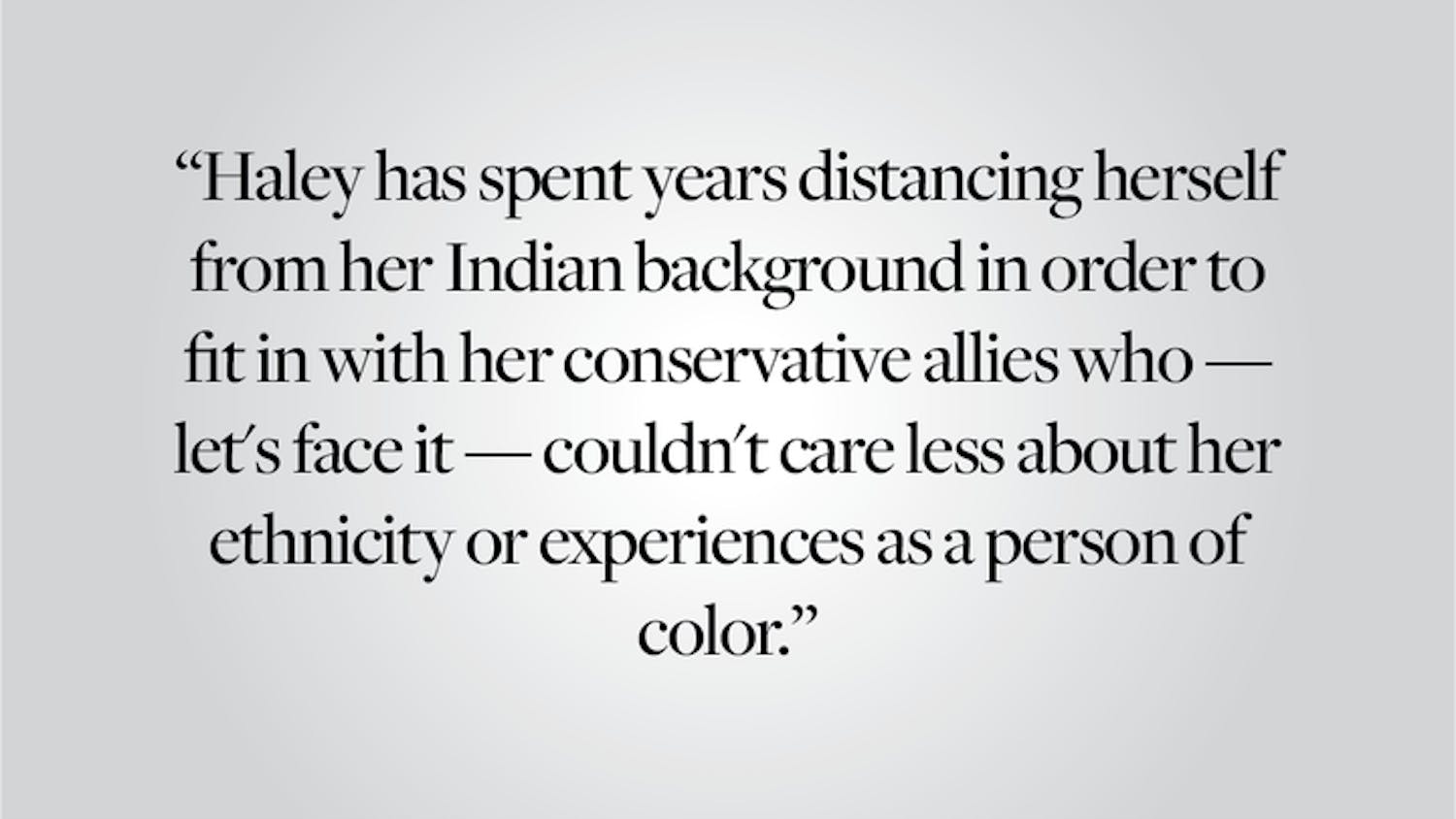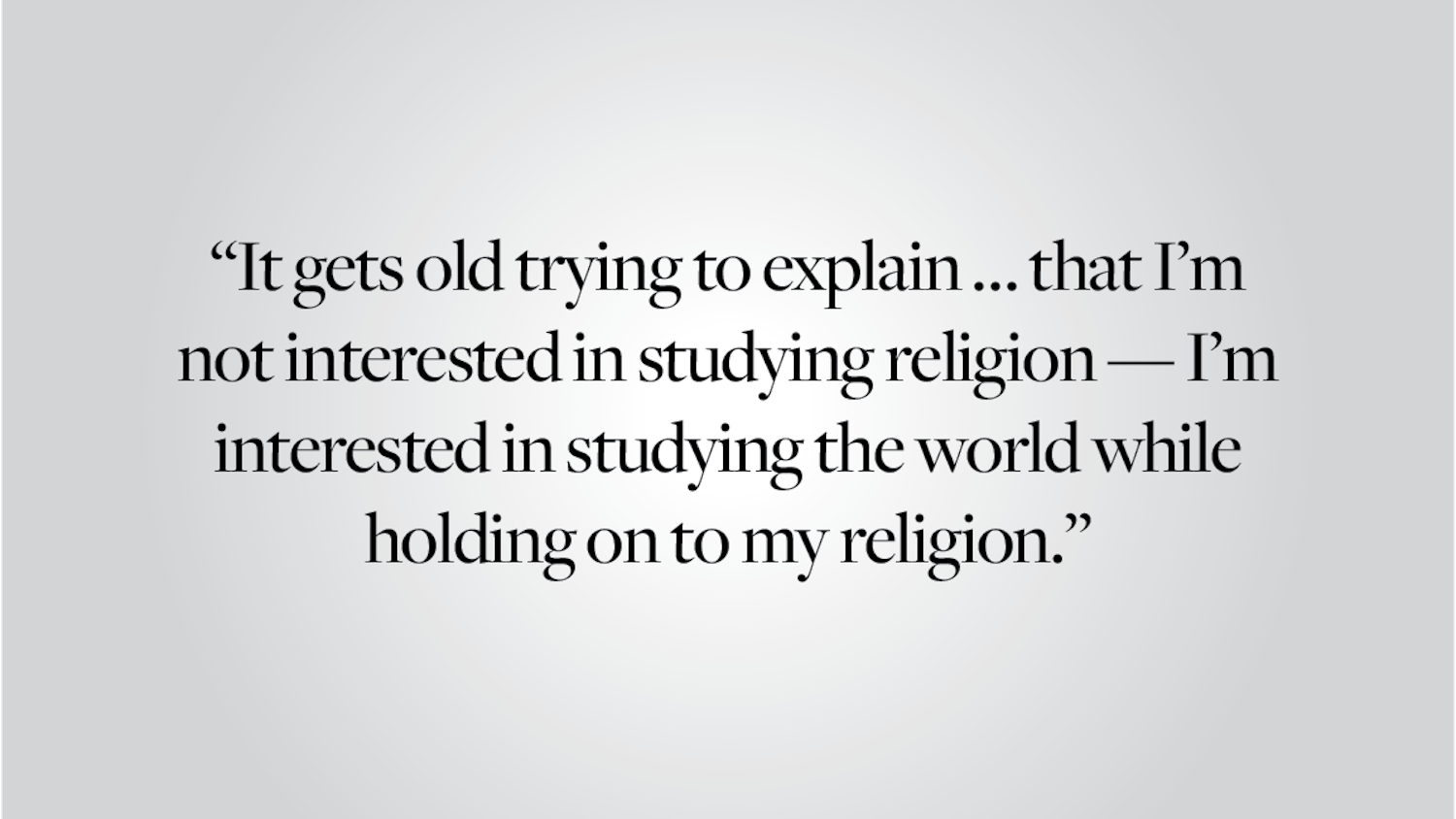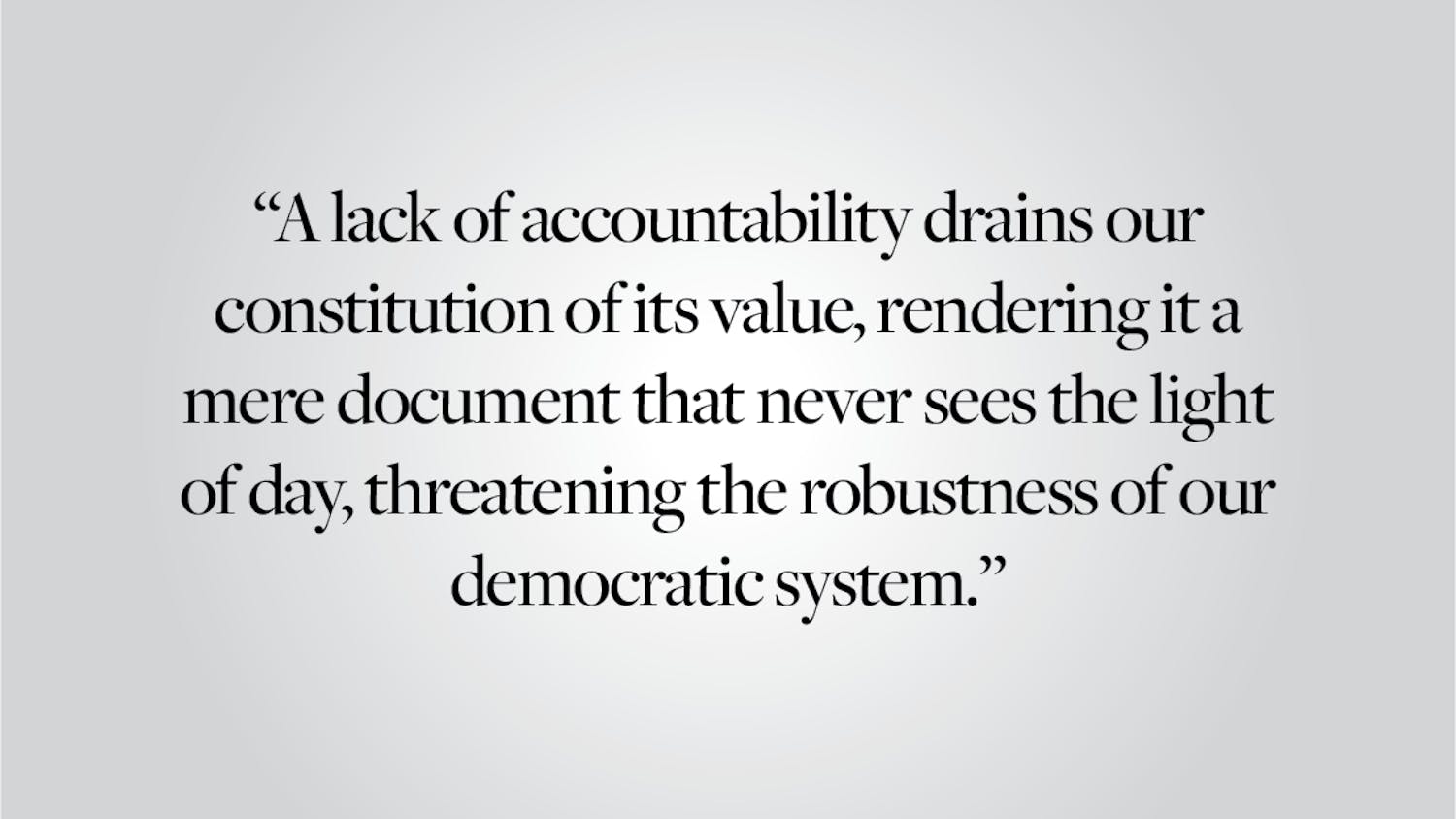With the immediately provocative title “Should Free Speech be Limited on College Campuses?” the discussion between Greg Lukianoff, president of the Foundation for Individual Rights in Education, and Stanley Fish, visiting professor of Law at Yeshiva University’s Benjamin N. Cardozo School of Law, was marketed by the Political Theory Project as a two-sided exploration of an obviously controversial and relevant subject. At Brown — a campus that often avoids rigorous debate over controversial social issues in favor of innocuous consensus — the chance to observe a genuine discussion on the topic of free speech at college was a unique one that seemed to promise a kind of catharsis to those of us who are frustrated with an otherwise polarized climate.
Lukianoff brought the event to a promising start, espousing the kind of centrist, libertarian principles characteristic of his work for FIRE. But as Lukianoff proceeded through his arguments, it became quite apparent that he was deliberately avoiding serious discussion of challenging conflicts — such as instances of on-campus racism in relation to free speech — thus omitting any mention of perhaps the most contentious aspects of the event’s prompt. In my view, this was an evasive maneuver that allowed him to avoid engagement with some of the most powerful counterarguments to his positions. For instance, he did not adequately address the frequently espoused position that “safe spaces” limit free speech to allow a certain marginalized group to express views that would otherwise be suppressed. Instead of discussing the frequency with which the effort to limit on-campus racism comes into conflict with “free speech,” Lukianoff attempted the rhetorical stunt of predominantly discussing cases in which conservative social justice protests violated the U.S. free speech jurisprudence. By positioning his anecdotes around issues such as pro-life protests, he avoided the predictable backlash of Brown’s predominantly liberal student body.
Of course, all of this would have seemingly been more permissible had Fish responded with a contrasting perspective, differentiating himself from Lukianoff while addressing the obvious rhetorical evasions of his presentation. Instead, after Fish received a warm introduction and stood before the anxious audience, he declared that he agreed with Lukianoff on most things. For those of us anticipating a much-needed contrary perspective, it was frustrating to realize that once again we would be listening to a non-debate on the topic of free speech at college campuses.
Unfortunately, Fish appeared far more interested in provoking the audience through polemical declarations than facilitating a helpful discussion on an important topic. For example, few people would contest the claim that professors should have ultimate jurisdiction in determining course content and thus have the right to override student requests for changing the material. But Fish framed this point in a deliberately inflammatory manner by stating that students’ opinions were inconsequential to classroom structure and university policy in general. Entertaining as it was, Fish’s entire contribution might be summarized as “polemics first and intellectual substance later.” Fish and Lukianoff ultimately offered almost no challenges to one another’s positions, instead voicing congratulations and frustrating words of mutual praise. It was as if I was listening to a sermon, where one felt uninclined to voice an objection or else disturb the room’s contented tranquility and each speaker’s self-satisfied musings.
Moreover, at the event, I recall seeing no black students in the almost completely white audience. You can imagine the frustration of many attendees at watching a discussion over freedom of speech on campus — an issue inexorably linked to questions over the permissibility of racism and hate speech — proceed without the engagement or even acknowledgment of the students whose perspectives are so essential to the debate. With the exception of questions raised by two students, both Lukianoff and Fish did not address the lack of diversity represented in the debate. Overall, both presented themselves as obviously talented and articulate speakers who saw no need to account for the most important counter-perspectives on the topic. I sympathize with the speakers’ views on this issue and think that voices like theirs are essential to any future conversations on the topic of free speech at colleges. But their arguments were unfortunately marred by tactically evasive maneuvers and capricious argumentative positions. Fish and Lukianoff disappointingly diverted the conversation and prevented a real debate from ever occurring.
Julian Jacobs ’18 can be reached at julian_jacobs@brown.edu.
Please send responses to this opinion to letters@browndailyherald.com and other 0p-eds to opinions@browndailyherald.com.




